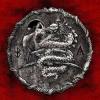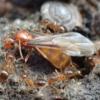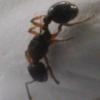I am very curious on american army ants in the genuses Labidus, nomamyrmex, and neviamyrmex. Just wondering has anybody here kept any one of these species because I can't seem to find any information on any of them.
These ants seem like cool ants that are available in my area but I just don't know anything about them.
















